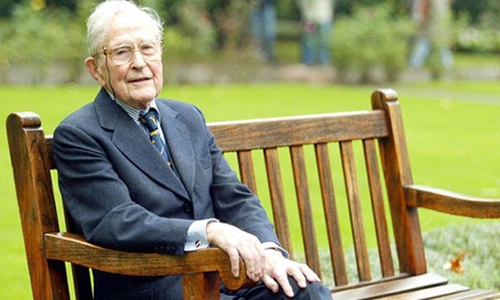'Great Escape' hero denied payout due to insufficient hardship: UK files
London: A survivor of the fabled "Great Escape" from a World War II Nazi concentration camp was initially denied compensation after the British government ruled he had not suffered enough, declassified documents revealed Thursday.
Flight Lieutenant Bertram "Jimmy" James spent five months in solitary confinement at Sachsenhausen camp in Germany, where he was held for a year after being recaptured following his escape from Stalag Luft III in March 1944.
The Stalag Luft III breakout inspired the 1963 film "The Great Escape" starring Steve McQueen.
The Federal Republic of Germany agreed in 1964 to pay the British Government £1 million ($1.4 million, 1.26 million euros) to be distributed to victims of "Nazi persecution".
James applied to the Foreign Office for compensation, but his claim was rejected on the grounds that he was not a victim of persecution, according to declassified files from the National Archives published Thursday.
The 1964 file includes details of his years in captivity, and his audacious escape efforts.
James was captured by the Nazis after being shot down over the Netherlands in 1940 and made 13 attempts to escape over the next five years.
He was disguised as a wood mill worker during the Stalag Luft III escape by 76 inmates. Later, he was one of 73 to be recaptured, fifty of whom were then executed.
The former pilot admitted in his submission that the conditions he was kept under were not as harsh as some, and that he had no permanent disability as a result.
"Although, naturally, this is an experience which I should have preferred to have avoided," he added, but the Foreign Office rejected the claim.
"Your case has been very carefully considered, and I regret to inform you that your application cannot be accepted for registration," the ministry said in a letter.
"The conditions in the Sonderlager (special camp) at Sachsenhausen were such that you were never subjected to this type of persecution."
James replied with "disappointment" and outlined the interrogation and torture he had endured, watching as inmates were beaten and worked to death before "their bodies were burnt in bonfires".
It was only after parliament held an inquiry in 1968 that the Sachsenhausen survivors received compensation, and he was eventually awarded £1,192.
Related Posts

